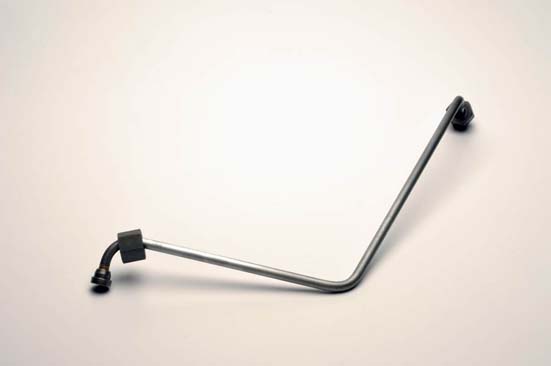Fluid line bending is a foundational process in industries such as hydraulics, automotive, and aerospace. It ensures that fluid lines—whether for hydraulic systems, braking mechanisms, or fuel delivery—are engineered with accuracy for optimal performance and safety. But what exactly does fluid line bending entail, and why does it matter so much in highly technical applications? More importantly, how do you choose the right expert for such a meticulous task?
What Is Fluid Line Bending and How Is It Used?
Fluid line bending refers to the process of forming and shaping tubes or pipes that carry liquids or gases under pressure. This process ensures that the tubing used in hydraulic, automotive, and other fluid delivery applications maintains structural integrity while navigating through compact or complex systems.
Why It Is Critical for Some Applications
When dealing with systems that depend on the efficient transport of fluids or gases, every bend matters. Fluid line bending is especially critical in industries where precision, safety, and durability are non-negotiable.
Fluid line bending isn’t just about shaping pipes—it’s about ensuring the performance, reliability, and safety of an entire system. Here’s why it’s so vital for various applications.
Optimized Fluid Dynamics
Proper bends reduce turbulence and ensure smooth fluid flow. Poorly executed bends can create bottlenecks or pressure drops that compromise system efficiency.
Space-Saving Solutions
Many systems operate within constrained spaces, such as the engine compartments of vehicles or aircraft. Fluid line bending allows engineers to fit complex tubing into tight spaces without compromising integrity or accessibility.
Enhanced Durability
Well-executed fluid line bends prevent kinking, cracks, or stress points that can lead to system failure. This longevity is particularly important in high-stakes environments like aerospace or heavy industry.
Regulatory Compliance and Safety
Industries like automotive and aerospace are governed by strict regulations. Precision bends help manufacturers comply with these standards, ensuring user safety and system functionality.
For example, a misstep in hydraulic line bending could lead to operational failures in heavy machinery—an unacceptable risk in industries where safety is paramount.
Efficient Fluid Flow
Improperly designed or bent tubes can cause blockages, turbulence, or pressure drops within a system. This leads to inefficient performance or even system failures. Proper bending ensures smooth, consistent fluid flow.
Space Optimization
In industries like automotive manufacturing or aerospace engineering, space is often at a premium. Fluid line bending enables engineers to design components that fit snugly within these compact layouts without sacrificing performance.
Enhanced System Reliability
Hydraulic systems, for example, depend on correctly bent lines to keep fluids flowing with the right pressure. Poorly bent lines risk leaks, fractures, or contamination—putting the entire system at risk.
Aesthetics Matter Too
While functionality tops the priority list, precision tube bending also has aesthetic value. High-end automotive systems, for example, rely on seamless fluid lines to contribute to the overall design appeal.
Industries That Rely on Fluid Line Bending
- Hydraulics: Essential for equipment like excavators, cranes, and forklifts where high-pressure hydraulic systems run the machinery.
- Automotive: Used in fuel lines, brake lines, and exhaust systems to ensure safety and smooth engine operation.
- Aerospace: Aircraft fuel delivery and hydraulic systems benefit immensely from carefully bent tubing designed to withstand high altitudes and temperature variances.
What Makes Acme Tube Bending Stand Out?
When it comes to fluid line bending, not all tube benders are created equal. Acme Tube Bending has earned its reputation as an industry leader by continually investing in cutting-edge technology and prioritizing customer satisfaction. Here’s what sets Acme apart! Acme Tube Bending is the leading provider of tube fabrications for fluid lines and other small-radius tubes. Our company specializes in precision engineering and creating custom solutions for our clients.
Have more questions on fluid line bending or need to make an order?
